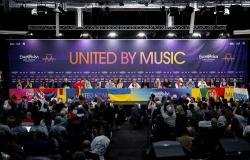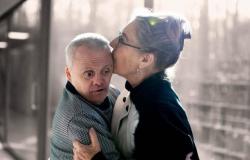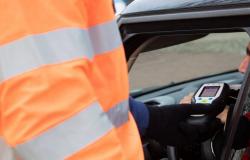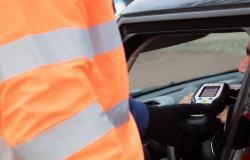Ursula von der Leyen loses praise with her dual job of EPP party figurehead and Commission chairman. Is French President Emmanuel Macron using Italian ex-Prime Minister Mario Draghi as a wildcard, or does he mainly want to obtain firm conditions from EU Commission President Ursula von der Leyen for his own European program?
Russian influence and the push towards the radical right dominated the last session of this European Parliament in Strasbourg this week. Three Belgian tenors are putting an end to their mandate. Guy Verhofstadt (Open VLD), with his passionate European ideas and speeches, Philippe Lamberts (Ecolo), highly respected as a bridge builder in the hemisphere, and former Flemish Prime Minister Geert Bourgeois (N-VA), strongly committed to trade.
Or the recent scandals at the Alternative for Germany (AfD) – where an employee of a European Parliament member was arrested on suspicion of spying for China – and the Dutch Forum for Democracy – where a European Parliament member portrayed Ukraine as a supplier of children for organ trafficking – the slowing down the advance of the radical right in Europe is highly questionable. In the Netherlands the formation continues to drag on. Geert Wilders’ PVV is racing to almost a third of the seats in the House of Representatives in the polls, but he is pulverizing his coalition partners. It is also unclear whether Hungarian Prime Minister Viktor Orbán’s illiberal countermovement will result in new or larger radical right factions in the European Parliament. Party agreements will only be made immediately after the European elections of June 9, when it is clear how the cards lie.
In German
Ursula von der Leyen has already started her election campaign as a leading candidate for the largest party in the hemisphere, the center-right European People’s Party (EPP). Five years ago, the then German Defense Minister was catapulted to President of the European Commission by French President Emmanuel Macron. She started with very little political support, but she built up credit along the way, with her ambitious legislative packages such as the Green Deal and strong digital legislation.
Von der Leyen started the job with very little political support, but she built up credit along the way, with ambitious packages such as the Green Deal. However, criticism has been increasing recently.
That credit has diluted in recent months. Criticism of the idiosyncratic, very German style of communication and the lack of transparency is increasing rapidly. Earlier this year, the European Parliament filed a lawsuit against the Commission president for giving the Hungarian government access to 10 billion euros in EU subsidies in early December. However, that money was frozen because the Hungarian constitutional state leaves much to be desired.
Ursula von der Leyen has refused for years to provide access to the vaccine contracts she concluded during the pandemic. The European Public Prosecutor (EPPO) has already started an investigation into this. She received a lot of criticism when she went to Israel, shortly after the Hamas terrorist attack, and had no regard for the suffering of the Palestinians. Von der Leyen also decides on the allocation of ad hoc budgets himself, without knowing the European Parliament. She often turns to a crisis instrument, Article 122 in the European treaties, which allows quick decisions among the member states and only ‘informs’ parliament.
Small team of confidants
She doesn’t always approach it smartly either. Earlier this month, Von der Leyen appointed her German party colleague Markus Pieper as European SME envoy, even though there were female candidates with better scores. There was strong criticism in her own Commission, including from French EU Commissioner for the Internal Market Thierry Breton, and a majority in the European Parliament condemned the appointment. Von der Leyen stood his ground, until Pieper himself dropped out of the job under all the pressure.
Von der Leyen is vulnerable because of her unbending and stiff attitude.
That unbending and stiff attitude makes Von der Leyen vulnerable. The dividing line between her job as Commission President and that of EPP candidate also bothers her. The Commission President relies on a small circle of confidants. Her former chief of staff Björn Seibert is now her campaign manager and officially no longer interferes with her duties as EU Commission President. But Seibert has been her confidante in recent years, the man who carefully mapped out all strategic steps and has a broad international network. That dividing line cannot be truly watertight.
Von der Leyen has also been contested in ‘her’ European People’s Party. She did receive the support of four-fifths of party members at the electoral congress in Bucharest in March. But the almost hundred votes against it, including the French conservatives of Les Républicains, bite. Even former Brexit negotiator Michel Barnier voted against her appointment.
Opening to the right
In recent months she has been more in line with the European People’s Party. She withdrew the law that halved the use of pesticides in agriculture, and the nature restoration law, which was highly contested within the EPP, ended up on the pile of EU legislation that has not been finalized. The new European Parliament will decide after the elections whether to continue to tackle this file. The question now is whether Von der Leyen will take the nature restoration law off the table, or whether she will propose an amended law.
Over the past five years, the European People’s Party has clearly sought rapprochement with right-wing parties. Party leader Manfred Weber hoped for an alliance with Prime Minister Giorgia Meloni’s former fascist Fratelli party. Von der Leyen has also made a lot of effort in recent years to keep Meloni as a friend.
But this opening to the right could become problematic for the EPP: Socialists, Liberals and Greens have until now functioned as the government parties that support the Commission’s policy. If the EPP moves much more to the right, that ‘government coalition’ threatens to disintegrate and it will become very difficult to get legislation voted in the next five years. Finding a sufficiently large alternative majority will be anything but easy.
Macron’s choice
The new European Parliament will have 720 seats. The Commission President must be elected by a majority of at least 361 votes. Her biggest question mark is called Emmanuel Macron. The French president put her in pole position five years ago, but now remains silent about his pupil. The open criticism that French EU Commissioner Thierry Breton regularly directs at Von der Leyen and his ambition to become Commission President himself is a clear sign of the future. Macron does not want to give Von der Leyen a free pass and keeps a big finger in the pie himself.
Mario Draghi’s name is increasingly popping up as the new Commission President. Many see the hand of Emmanuel Macron in this.
Macron made it clear on Thursday which direction Europe should go: the European future is at stake. In his speech at Sorbonne University, he criticized Europe’s lack of ambition and slowness. Macron advocates European purchases in strategic sectors such as defense and wants to give Europe back its ‘grandeur’: ‘Europe must become a great power that commands respect, guarantees its security and regains strategic autonomy.’ To achieve all this, the European budget must at least double and Europe must take on new joint debts, Macron warns. That subject is taboo in Germany and the Netherlands.
In recent weeks, the name of ex-Italian Prime Minister and central banker Mario Draghi has increasingly emerged as a hijacker on the coast. More and more sources see Macron’s hand in this. He puts Draghi’s name forward as president of the European Commission. Draghi has enormous authority. And they are both power thinkers. ‘Macron has good reasons to make the Italian-French axis as strong as possible. It’s a natural tandem. France is financially, economically and budgetarily in the same vein as Italy,” says Member of the European Parliament Johan Van Overtveldt (N-VA). Not Germany, but France dominates Europe. For him, the fact that the European Parliament comes to Strasbourg every month is the ‘ultimate proof of the French position of power in Europe’.





